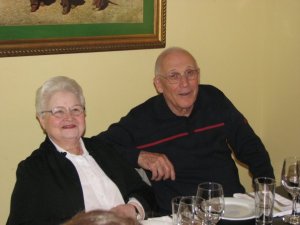Years ago while sitting in a San Francisco cafe, I moaned to an Israeli friend: “I like being here but I miss Israel. And when I’m in Israel the things that drive me crazy there make me want to come back to the States! I’ve moved around so many times I feel like it’s time to make a decision about where to settle down but I just don’t know where that should be!”
My friend, bless her Zen-filled heart, replied calmly: “Why? Why not be a global citizen? That’s the way I feel. I’m comfortable wherever I go. Of course there are places I prefer to be but I’ve learned to relax, enjoy and take the best of what each place has to offer wherever I am.”
I didn’t get it. My then-mindset dictated a MUST DECIDE attitude backed by conviction that loyalty to one-place-only indicated good sense. Die hard locale fidelity was my internal dictator.
But this summer the meaning of her advice clicked. And as the surreal nature of realizations go, it hit me head-on right in the middle of a two-step move to Toby Keith’s Trailerhood as I line danced with total strangers in a small Cincinnati working class neighborhood bar.
I spend summers in Cincinnati with my 8-year-old so that he can get to know his aunts, uncles, cousins and grandparents, go to an English speaking summer camp and gain exposure to the multi-cultural experience of Israel versus the U.S. For me it’s a break from the intensity of Mid-East living and work and it’s also an opportunity to spend quality time with family and loved ones.
Thanks to Facebook, I started reconnecting with old Cincinnati friends each year, adding a dimension of fun and depth to our stays.
Over steamy cups of coffee and at dinners, parties, meetings, restaurant openings, Salsa on the Square, movie nights and art exhibits or during hours spent poolside, on shopping excursions and meeting new people via my old friends, I discovered I have arrived. I am globalized.
Because as I broke into a slight sweat alongside our a 60+ year-old line dance instructor Patty all decked out in her denim miniskirt and matching vest that I was reminded of Tel Aviv. Saturday morning folk dance sessions along the Med pulsate to different strains but the Patty’s, Rex’s, Letta’s and Jimmy’s of Western Hills are alive and well inside the bodies of the Itziks, Chanas, Loolees and Shai’s of Israel.
As one friend shared the story of her beloved husband succumbing to cancer, another talked about Botox treatments, others spoke of job and financial woes, methods for cutting costs in a flagging economy, choosing an education plan for a 1st grader and facing the challenges of elder parent care, I realized I was physically in Cincinnati. But I had lived all of these talks in Tel Aviv. And Paris, London, Thailand and Singapore.
Vive la difference, I didn’t have to choose anymore. I was having a damned good time with my global family and friends and rather than seeing the differences that separate us all, I was noticing the similarities forging our paths.
SO…..to my collaborating partners in crime – dear family, global friends, colleagues and an extra special someone held close to my heart: Thank you for conspiring with me to make life richer, fuller, more meaningful and funner wherever I go
See you next year…..!










 Today I saw her at the park again and she was sans baseball cap. But her short, carrot colored hair was
Today I saw her at the park again and she was sans baseball cap. But her short, carrot colored hair was 
